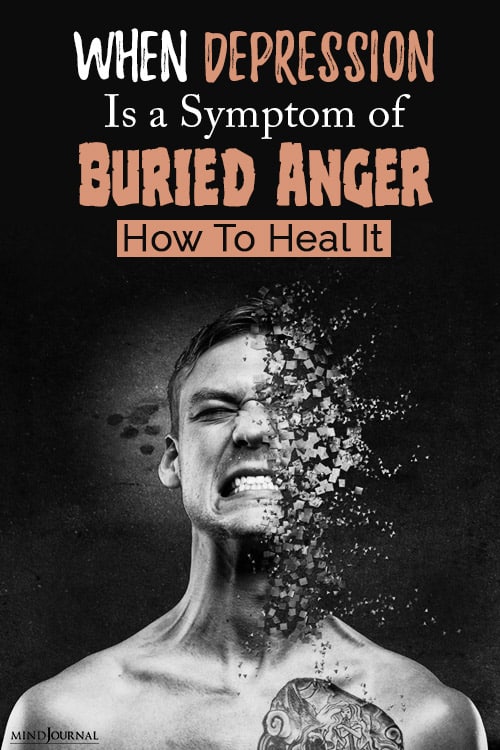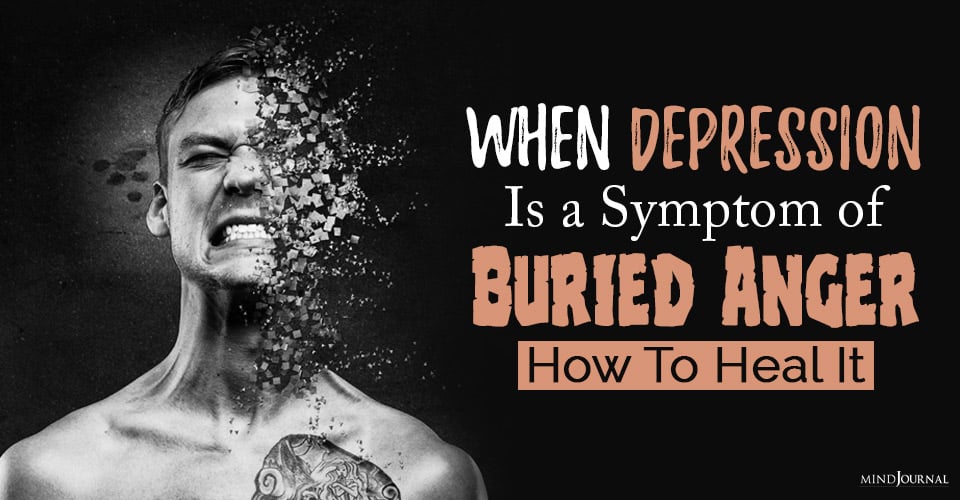Written by: Hilary Jacobs Hendel, LCSW, author of It’s Not Always Depression
Trauma was always a word I associated with a catastrophic event: a car accident, a war experience, child abuse, or being a victim of crime. So, it was an “aha” moment to learn that symptoms of trauma, like depression, could be caused by repeated instances of emotional disregard. Childhood emotional neglect comes in many forms and is more common than one would hope.

Below are a few examples of emotional disregard:
1. Rachel, 8 years old, was scared to go to school. Her father repeatedly told her there was nothing to be afraid of and that she shouldn’t be a “scaredy-cat.” Dad didn’t ask what she feared or spend any time trying to understand Rachel’s fear from her point of view.
2. Johnny told his mother he hated his little brother and was sorry he was born. The next moment, a hard slap across the face stunned him. Johnny was told never to speak in such a hateful way again.
3. Barb, age 12, kicked the winning goal in soccer. She got in the car riding high with emotions like excitement, joy, and pride in herself for playing a great game. Her mother, instead of matching her enthusiasm with a big proud smile, immediately pointed out the “ugly” red juice stain on her shirt. She was devastated.
Read 5 Ways Childhood Emotional Neglect Causes Depression in Adulthood
When our emotions are invalidated, we experience a crushing insult. And, it evokes anger and even rage, depending on how young we were when the emotional neglect began plus how often it occurred.

David, a former client of mine, grew up with parents who bristled at emotional displays. As a child, when David cried, he was told he had nothing to be sad about or to “chin up!” When David was scared, he was told to stop being such a baby. When he was excited, he was told to cool it. When he was angry at his parents, they got insulted and left him alone. They never asked What’s the matter? How do you feel? or, Are you ok?
David, now 30, showed up in therapy with depression. Blaming himself for his anguish, he described a privileged upbringing with parents who provided well for him. Attending private schools and being given a generous allowance, he was truly grateful to his parents for their gifts.
We soon discovered that part of what led to his depression was the conflict between positive and negative feelings for his parents. He found it hard to validate his emotions. Guilt, an inhibitory emotion on the Change Triangle, left his anger, a core emotion, buried and festering. Most people don’t realize that we can be grateful to our parents for giving us life, financial security, and for making sacrifices, and, at the exact same time, feel angry at them for not meeting our emotional needs. This understanding helps us embrace our complex and conflicting emotional worlds.
As David grew from a teenager to a young adult, his depression got worse. This makes sense because his anger was still suppressed. To squash anger down, the mind enlists inhibitory emotions like anxiety, guilt, and shame, which are effective at keeping anger out of conscious awareness. But they also feel awful and undermine confidence and well-being. Furthermore, the cost of chronically suppressing anger is depression. The energy needed for vital living and outside engagement gets diverted to keeping rage pushed down so that we don’t lose control or lash out.

Read How To Grow Up Mentally: 15 Simple Tips
Healing Depression By Releasing Rage
One effective way to ease and even heal depression is by releasing the enormous burden of our visceral rage. How is this done?
Anger portrayals, a technique common in accelerated experiential dynamic psychotherapy (AEDP), are extremely therapeutic. In a nutshell, anger portrayals guide a person in identifying anger in their body. Anger typically is felt as heat, energy, and tension. Then, by noticing and staying with the physical sensations inherent in the core emotion of anger, impulses and images emerge, like a movie. Allowing
the movie to unfold in real-time, the person gives themself permission to envision exactly what the anger wants to do to those who hurt them. In this way, anger comes up and out, and symptoms of depression remit.
Sometimes guilty feelings make it hard to validate and fully experience anger. In the beginning, when David first started to connect with his inner rage, another guilty part of him would leap up and stop the anger from coming up: “But they did so much for me. I’m so grateful for all the good things they did.”
There’s so much emphasis on gratitude these days that it is important to know that we can hold opposite and conflicting truths at the same time. “David,” I said during one session, “let’s fully validate the gratitude and love you have for your parents, and, for just right now, can we ask for the gratitude, love, and any other feelings you have to step back while we tend to the anger inside?”
Read The Shortest Ultimate Guide To Dealing With Emotions
Rage portrayals work because, as research shows, when it comes to processing emotions, the brain doesn’t really know the difference between fantasy and reality. Imagining what our rage wants to do and then carrying that out in fantasy allows the energy of the rage to come up and out. No longer are forces required to hold down that anger, so energy becomes available again for vital living. The best part about anger portrayals is that no one gets hurt because it’s all happening in imagination.
Depression is the beginning of a story, not the end. It is a symptom that tells us that something deep inside needs tending, be it anger, fear, sadness, or more. And when we tend to ourselves and our deepest truths, we recover stronger and wiser. We no longer need to fear our emotions but can use them along with our logic and reason to meet life’s challenges in the direction of our deepest wants and needs.
Patient details have been changed to protect confidentiality.
For free resources on emotions, visit hilaryjacobshendel.com
References: Fosha, D. (2000). The Transforming Power of Affect: A Model for Accelerated Change. New York: Basic Books Fosha, D., Siegel, D., Solomon, M. (2009). The Healing Power of Emotion: Affective Neuroscience, Development & Clinical Practice (Norton Series on Interpersonal Neurobiology). New York: W.W. Norton Hendel, H.J. (2018). It’s Not Always Depression: Working the Change Triangle to Listen to the Body, Discover Core Emotions, and Connect to Your Authentic Self. New York: Spiegel & Grau
Originally appeared on: Psychology Today Republished with permission











Leave a Reply